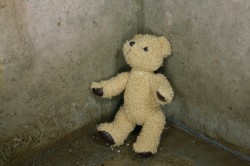Kids and Death: Alternatives to a Funeral
 Not every child is emotionally equipped to attend a funeral, and not every funeral is welcoming to attendees under a certain age. The decision of whether or not to bring kids to a funeral has long been a source of contention within families, and there is no easy answer regarding whether or not it’s acceptable. In almost all cases, it comes down to the child’s age, the child’s relationship to the deceased, and the wishes of the family.
Not every child is emotionally equipped to attend a funeral, and not every funeral is welcoming to attendees under a certain age. The decision of whether or not to bring kids to a funeral has long been a source of contention within families, and there is no easy answer regarding whether or not it’s acceptable. In almost all cases, it comes down to the child’s age, the child’s relationship to the deceased, and the wishes of the family.
If your child doesn’t attend a funeral, it may still be important for you to address the issue of death and his or her feelings regarding your loss. Here are a few ways you can help your child cope if attending the funeral isn’t an option.
- Talk about Death: Above all else, communication is key. Your child cannot learn how to cope with his or her emotions or about the finality of death unless you talk about it. Although it’s not always an easy subject, do what you can to open up a dialogue and answer questions.
- Do Something Special the Day of the Funeral: It’s not necessary to attend a funeral to mourn. You can hold your own “life celebration” at home or do something out of respect for the deceased. This may mean doing something you loved to do with the deceased (visit a particular park, read a favorite book, release a balloon with a message attached), or simply staying home and spending time together. Marking the occasion in this way can help bring a sense of closure.
- Look at Photo Albums: For young children, the concept of someone never coming back can be difficult to understand—and it may take months or even years before the information is processed. However, that doesn’t mean he or she won’t feel the pangs of loss all the same. Don’t be afraid to look over old photos of the deceased and even other relatives who have passed on. This connection with the past may help your child to understand and feel more secure about the future.
- Go to the Memorial Lunch or other After Event: The funeral itself may be too scary for a child—especially if there is a casket present. Skip the more formal event and take your child to the gathering for family and friends afterward. This will allow them to connect with family and friends without the fear and anxiety that often accompany death.
- Visit the Cemetery at a Later Date: Cemeteries are scary to many kids, and the idea of “visiting” a loved one who is gone may be difficult to process, but taking your child to see the headstone is one way of helping them understand the finality of death. Always be sure your child is able to handle this situation before you make the journey. (No one wants to be surprised by a visit to the cemetery.)
Above all else, make sure that your child has the support network he or she needs. It’s not uncommon for children to act out or otherwise change their behavior when a death hits close to home. Talk with your child’s doctor if you have any fears about the way he or she is handling the loss. The doctor may be able to refer you to a great therapist or other resource to help your child cope.


